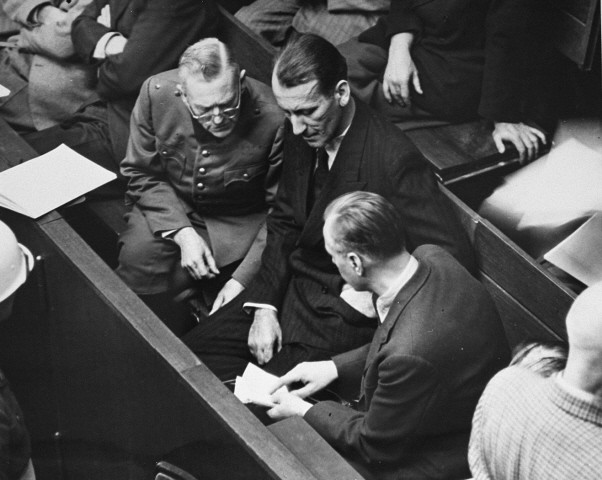
Wilhelm Keitel
In the immediate aftermath of the Holocaust, the world was faced with a challenge—how to hold individually accountable those German leaders who were responsible for the commission of monstrous crimes against humanity and international peace. The International Military Tribunal (IMT) held in Nuremberg, Germany, attempted to face this immense challenge. On October 18, 1945, the chief prosecutors of the IMT brought charges against 24 leading German officials, among them Wilhelm Keitel.
Wilhelm Keitel (1882–1946) was Chief of Staff of the German Armed Forces High Command. Keitel was responsible for crimes committed by the armed forces while waging war and authorized the support and participation of German troops in these crimes, including the murder of the European Jews.
Keitel was found guilty on all four counts (conspiracy, crimes against peace, war crimes, and crimes against humanity) and sentenced to death. He was hanged on October 16, 1946.
Critical Thinking Questions
Explore how challenges to ethical behavior and leadership played out in the context of the Holocaust. How do these challenges confront us today?
Across Europe, the Nazis found countless willing helpers who collaborated or were complicit in their crimes. What motives and pressures led so many individuals to persecute, to murder, or to abandon their fellow human beings?
How were various professions involved in implementing Nazi policies and ideology? Who was brought to trial after the Holocaust?
Beyond the verdicts, what impact can trials have?
The International Military Tribunal at Nuremberg is among the best known postwar trials. Investigate trials conducted by other countries after the Holocaust.

